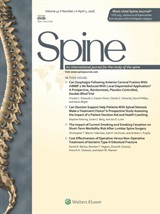 A journal has issued an expression of concern (EOC) for a paper on a common crop virus after the authors were accused of using competitors’ unpublished text and plasmids.
A journal has issued an expression of concern (EOC) for a paper on a common crop virus after the authors were accused of using competitors’ unpublished text and plasmids.
Investigations by the journal and the involved institutions — the University of the Witwatersrand in South Africa, where the paper’s authors are based, and North Carolina State University (presumably, where the accusing group is from) — were inconclusive, the notice states.
So the editor flagged “Sequences enhancing cassava mosaic disease symptoms occur in the cassava genome and are associated with South African cassava mosaic virus infection” with an EOC:
Continue reading Journal flags paper over allegations it used competitors’ text, plasmids


 Misconduct by a chemist at a Colorado lab run by the U.S. Geological Survey (USGS) has
Misconduct by a chemist at a Colorado lab run by the U.S. Geological Survey (USGS) has 
 The authors of a study about spinal fusion surgery have retracted it after realizing the cohort study was described as a prospective, randomized trial.
The authors of a study about spinal fusion surgery have retracted it after realizing the cohort study was described as a prospective, randomized trial.  A U.S. judge has denied a virology researcher’s third attempt to overturn a seven-year debarment from receiving federal funds, following a 2010 decision by the U.S. Office of Research Integrity.
A U.S. judge has denied a virology researcher’s third attempt to overturn a seven-year debarment from receiving federal funds, following a 2010 decision by the U.S. Office of Research Integrity. Note: We are reprinting below an article
Note: We are reprinting below an article